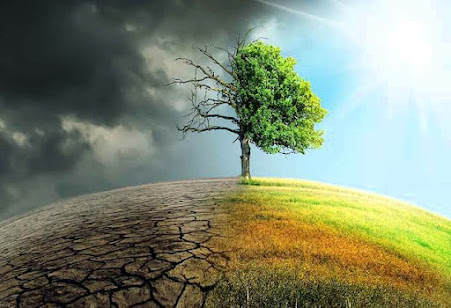There are several types of environmental pollution, but four main categories are commonly recognized:
1. **Air Pollution**: This type of pollution occurs when harmful or excessive quantities of substances, including gases, particulates, and biological molecules, are introduced into the Earth's atmosphere. Common air pollutants include carbon monoxide, sulfur dioxide, nitrogen oxides, ozone, volatile organic compounds (VOCs), and particulate matter. Sources of air pollution include vehicle emissions, industrial activities, burning of fossil fuels, agricultural activities, and wildfires.
2. **Water Pollution**: Water pollution occurs when harmful substances contaminate bodies of water such as rivers, lakes, oceans, and groundwater. Pollutants may include chemicals (e.g., pesticides, heavy metals), pathogens (e.g., bacteria, viruses), nutrients (e.g., nitrogen, phosphorus), and other substances (e.g., plastics, oil). Sources of water pollution include industrial discharges, agricultural runoff, untreated sewage, oil spills, and improper waste disposal.
3. **Land Pollution**: Land pollution, also known as soil pollution, occurs when land surfaces become contaminated with harmful substances, rendering them unsuitable for their intended use. Common contaminants include hazardous chemicals, heavy metals, pesticides, industrial waste, and plastic debris. Land pollution can result from improper disposal of waste, industrial activities, agricultural practices, mining operations, and urbanization.
4. **Noise Pollution**: Noise pollution refers to excessive or disruptive noise that interferes with normal activities and has negative effects on human health and well-being. Sources of noise pollution include transportation (e.g., traffic, aircraft), industrial activities (e.g., machinery, construction), recreational activities (e.g., concerts, sports events), and urbanization (e.g., noise from buildings, crowds). Chronic exposure to high levels of noise can lead to hearing loss, stress, sleep disturbances, and other health problems.
Addressing these types of pollution requires comprehensive strategies and measures to reduce emissions, improve waste management practices, protect natural habitats, and promote sustainable development. Efforts to mitigate environmental pollution are crucial for safeguarding human health, preserving ecosystems, and ensuring a sustainable future for generations to come.




No comments:
Post a Comment